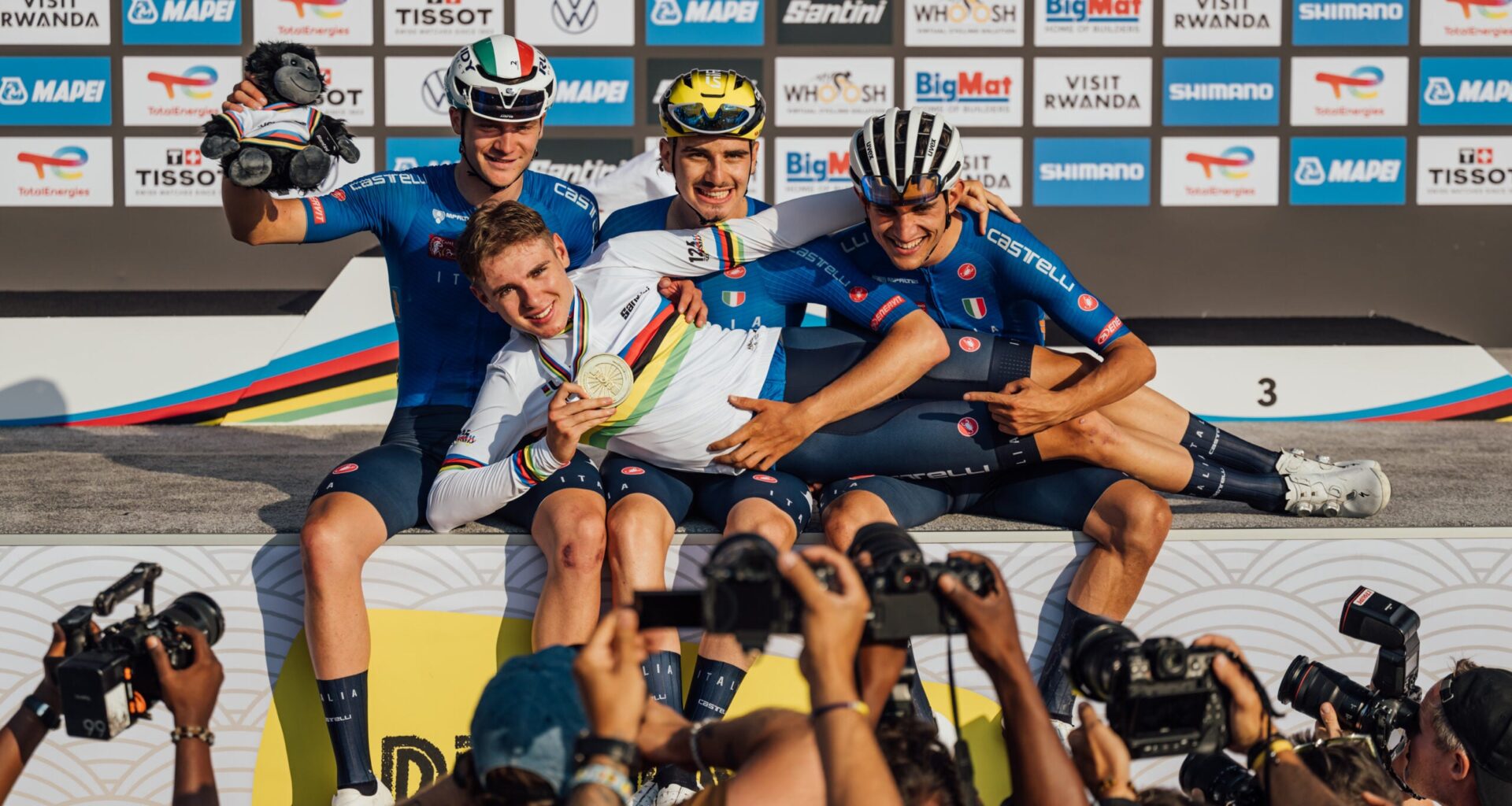Why do some young standouts in cycling excel as pros, while others fade away?
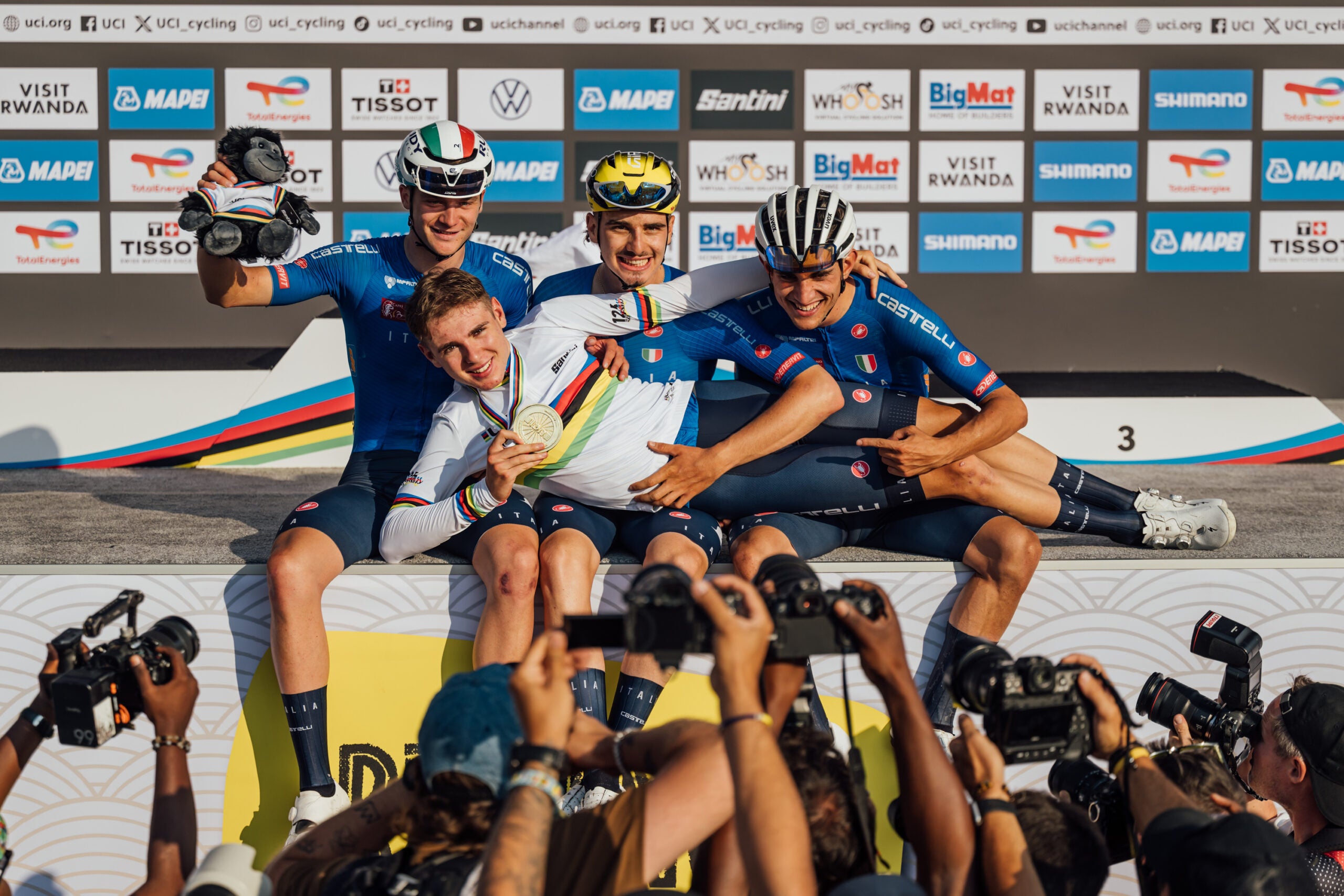
Italy’s Lorenzo Finn celebrates his U23 win. (Photo: Chris Auld)
Published September 30, 2025 01:54AM
Besides Paris-Roubaix and the Tour of Flanders, the world championships are my favorite one-day races to watch each year. But while I enjoy watching the elite men’s and women’s events, the junior and U23 events are my true favorites.
The winners of the elite events are usually well-known and already have successful professional careers (case in point Tadej Pogačar). However, the junior and U23 riders represent the future of the sport. With the right patience, support, and development, they too have the potential to turn cycling into their profession.
Looking back upon my junior and amateur racing days, I experienced some success, but in this sport full of peaks and valleys, turning professional, let alone having a 16-year career, was never a sure thing. The development pathway was quite different back then, as it was rare for anyone to turn pro for a major team before the age of 21.
Perhaps it was an old school mentality where it was believed that it took time for young riders to mature both mentally and physically, but it was just the way it was.
Burnout was the main concern for many coaches and general managers back then, but those days are long gone as riders are turning pro much earlier and seeing success very quickly in the world’s biggest races.
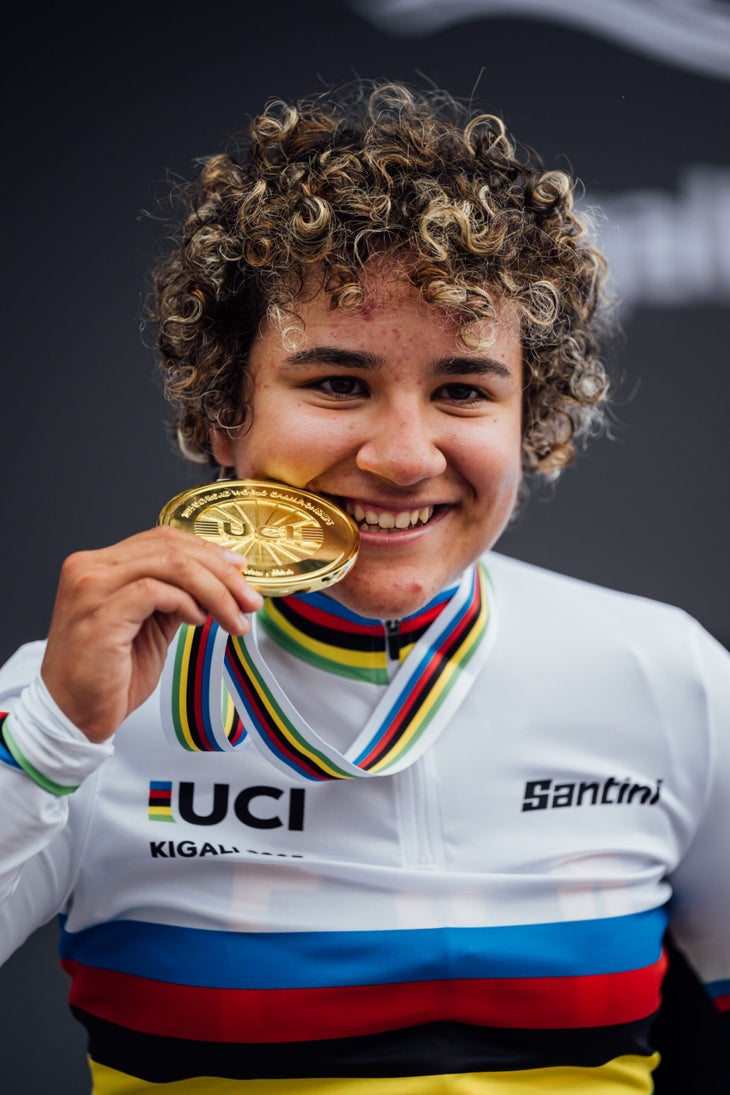 Paula Ostiz of Spain won the women’s junior race. (Photo: Chris Auld)
Paula Ostiz of Spain won the women’s junior race. (Photo: Chris Auld)
I did some research, both in my attic and online, to get an accurate idea of the percentage of riders I raced with at the world championships as a junior who went on to have professional careers.
Going through those names brought back some great memories, but by my calculations, it was about +/-20 percent.
Some big names are among that +/-20 percent who made it, but that leaves +/-80 percent who didn’t. While some went on to become legends of the sport, many riders who performed better than me or even got a medal in those races weren’t able to transition from junior to amateur to pro.
It could have been the pressure, high expectations, mental burnout, or simply deciding that cycling wasn’t their lifelong passion. I wonder if that +/-20 percent will increase or decrease in the future due to the accelerated pathway into the WorldTour?
The sport has evolved significantly in data and talent identification, with riders being recruited as juniors and living like pros from a very young age. They sign long-term deals to finish their junior career, spend a year or two as U23 riders on a development team, and if all goes well, they secure a place on the professional team.
This seems like a lot of pressure to me, as it is so different from the old-school development pathway I experienced. However, it appears that this generation of young riders is handling it quite well.
Are they having fun along the way, or are their lives just a mathematical equation of various data streams? Do these young riders even aspire to have 10- to 15-year careers or longer anymore?
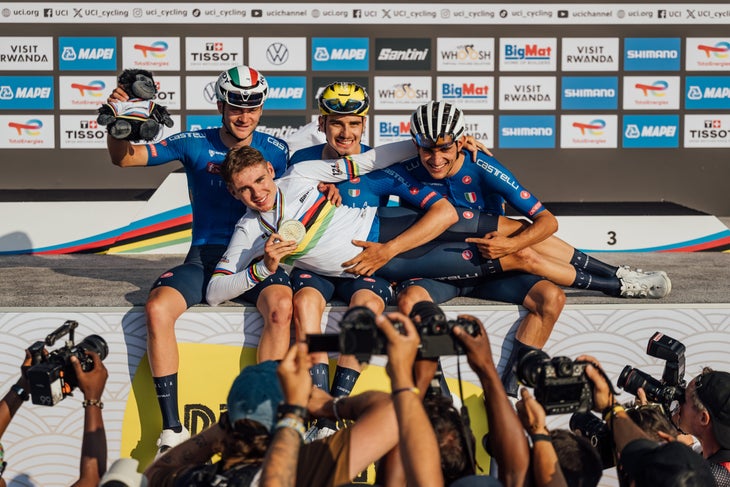 Italy’s Lorenzo Finn celebrates his U23 win. (Photo: Chris Auld)
Italy’s Lorenzo Finn celebrates his U23 win. (Photo: Chris Auld)
In the past, success in this sport was not only about year-to-year results but also the longevity of your career. Even if you turned pro early, being a professional for a long time taught you important life skills that would benefit you once your cycling career was over.
The level of talent emerging from the junior and U23 ranks and the maturity these riders show on the bike is obvious. However, I hope that parents, agents, and general managers are also focusing on developing the life skills that are often overlooked in professional sports.
This new generation of young riders is more professional than many of us old pros ever were. They have grown up with data, sleep trackers, and food apps. While it may seem overwhelming to many of us, it looks completely natural to them.
Being thrust into these professional environments much earlier brings both opportunities and challenges, and I just hope that these young riders are having fun along the way!
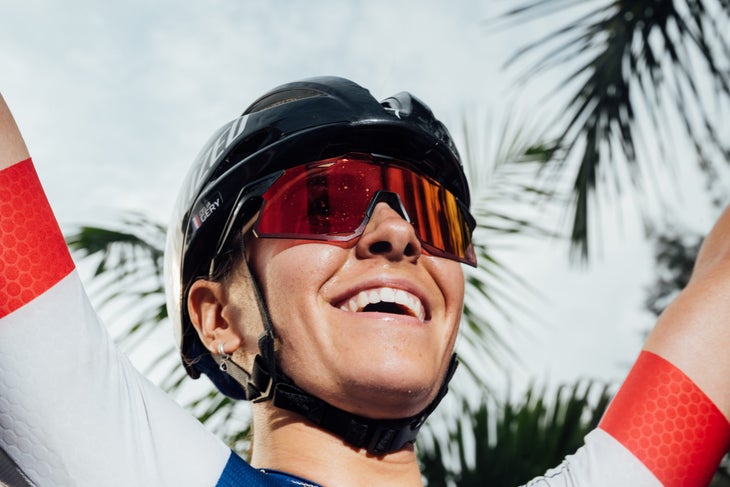 Célia Gery won the women’s U23 road race world championship (Photo: Chris Auld)
Célia Gery won the women’s U23 road race world championship (Photo: Chris Auld)
While success in the world championships this week in Kigali, Rwanda may fast-track some riders’ careers, there are many more that will take longer to make it into the professional ranks but may turn out to be even more successful.
I hope that the new generation of young riders can balance the pressures of early success with the pure love of the sport and ensure that they not only achieve their professional goals but also enjoy a healthy and fulfilling journey in the world of cycling and beyond.

